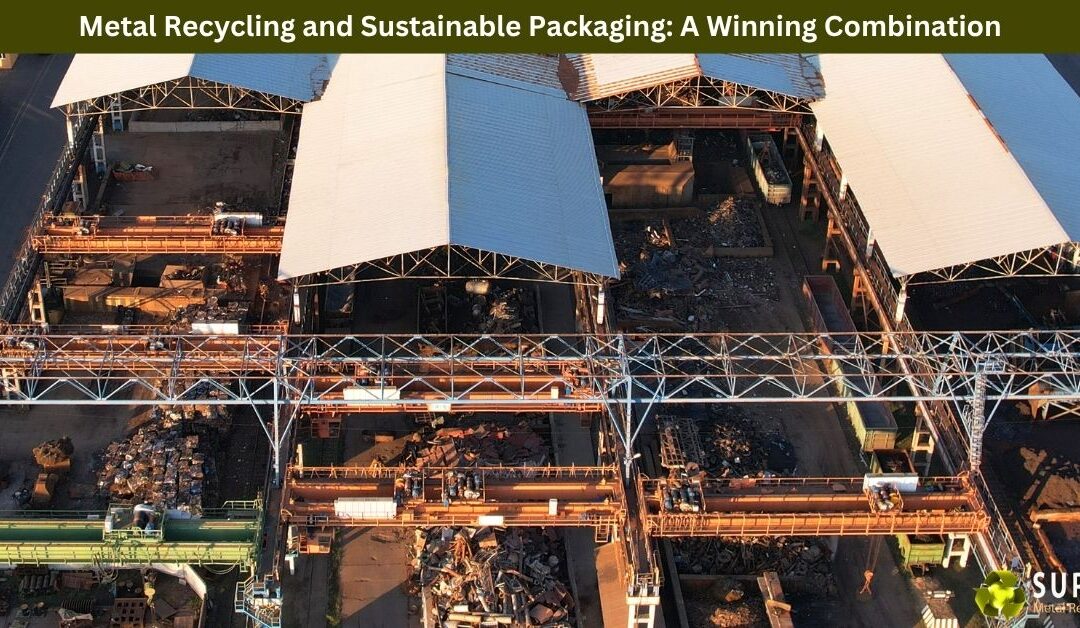When we talk about sustainable packaging, cardboard and biodegradable plastics usually steal the spotlight. But metal? It’s the quiet achiever. Strong, recyclable, and endlessly reusable, metal packaging deserves far more credit in the sustainability conversation — and when you combine that with smart recycling practices, you’ve got a winning formula that benefits businesses, the environment, and consumers alike.
Let’s break it down in a way that’s practical, real-world, and easy to understand.
Why Metal Packaging Is Already a Sustainability Hero
Metal packaging isn’t just about durability and sleek design — it’s one of the few materials that can be recycled infinitely without losing quality. That’s not something you can say about plastic or even paper.
Take aluminium, for example. It’s used widely in drink cans, food tins, aerosols, and even cosmetic containers. It’s lightweight (which reduces transport emissions), protects contents from light and air (extending shelf life), and is 100% recyclable — forever. Same goes for steel packaging, which is often used for canned foods and industrial goods.
The best part? Recycling metal saves a massive amount of energy. Recycled aluminium uses up to 95% less energy than producing new aluminium from raw materials. That’s a serious energy saving — and a major win for reducing carbon emissions.
The Role of Consumers and Brands
We can’t talk about sustainable packaging without bringing up the people who use and dispose of it — that’s where consumer behaviour and brand responsibility meet.
Brands that use recyclable metal packaging aren’t just making an eco-friendly choice; they’re also appealing to a growing base of sustainability-conscious consumers. Shoppers today pay attention. They read labels, they ask questions, and they want to support products that align with their values.
When businesses label their packaging clearly (e.g., “100% recyclable aluminium – please recycle”), they make it easier for consumers to do the right thing. It’s a small nudge that can have a big impact on recycling rates.
On the flip side, when metal packaging isn’t labelled properly — or worse, is mixed with non-recyclable elements like plastic coatings or glued-on paper labels — it complicates the recycling process and can lead to more waste than recovery.
Closing the Loop: Metal Recycling in Action
In Melbourne and across Australia, metal recycling is a critical piece of the circular economy puzzle. The more packaging that ends up at a metal recycling facility instead of landfill, the more material can be recovered and reintroduced into manufacturing.
At our facility, we regularly process everything from soft drink cans to bulk commercial packaging. It’s always satisfying to see high-quality metal being salvaged and reused instead of wasted. Each batch we recycle becomes part of something new — another can, a car part, or even a building material.
One standout example is how beverage companies have embraced closed-loop systems. Many brands now collect used cans, recycle them, and use that same material to produce new cans. It’s not just eco-friendly — it’s efficient, cost-saving, and marketable.
Challenges Still Exist
Despite all the positives, there are still some challenges. Mixed-material packaging is a big one. A tin with a plastic lid or a foil wrapper bonded to paper can confuse sorting machines and reduce recycling effectiveness.
Education and better packaging design are key here. When manufacturers simplify their packaging and consumers know how to properly dispose of it, the process works smoothly. When they don’t, even recyclable materials like aluminium can end up in the wrong place.
That’s why collaboration between packaging designers, recyclers, and consumers is so important — we all play a part in keeping metal out of landfill and in circulation where it belongs.
Business Benefits: It’s Not Just an Environmental Win
Switching to recyclable metal packaging isn’t just good for the planet — it’s also a smart business move. Here’s why:
- Cost efficiency: Recycled metal is cheaper to produce than virgin metal.
- Brand image: Eco-friendly packaging builds trust and loyalty.
- Regulatory compliance: As governments ramp up sustainability standards, businesses that get ahead of the curve stay competitive.
- Long-term supply security: Using recycled metals helps reduce reliance on mining and conserves natural resources.
In short, it’s a win-win — for the environment and for business.
Let’s Wrap It Up (Sustainably)
Metal packaging and metal recycling go hand in hand. Together, they create a powerful cycle of sustainability that reduces waste, saves energy, and meets the growing demand for eco-conscious choices.
At Super Metal Recycling, we’re proud to be part of this system — helping recover, sort, and recycle metal materials so they can live another life in new packaging, products, or structures. Whether you’re a business looking for a greener packaging option or a household making everyday recycling choices, your efforts matter.
So, next time you crack open a can or use a tin of beans, don’t just toss it in the general bin. That piece of metal has value — and with the right action, it can keep working for us again and again.
If you are in Glen Waverley, and looking for a metal recycling service, this is the best way to visit us.
Super Metal Recycling
345 Frankston – Dandenong Road, Dandenong South VIC 3175
(03) 9706 4909


Recent Comments